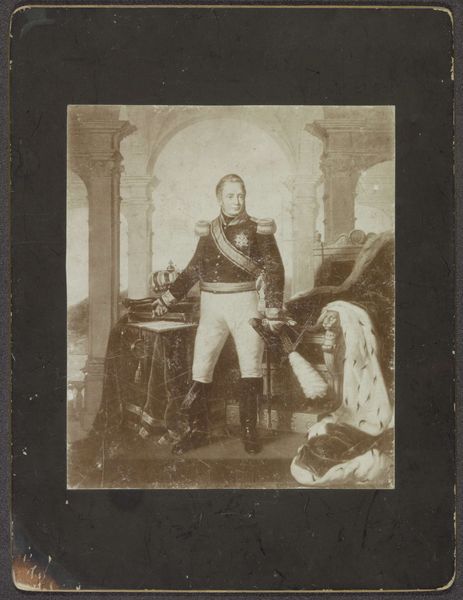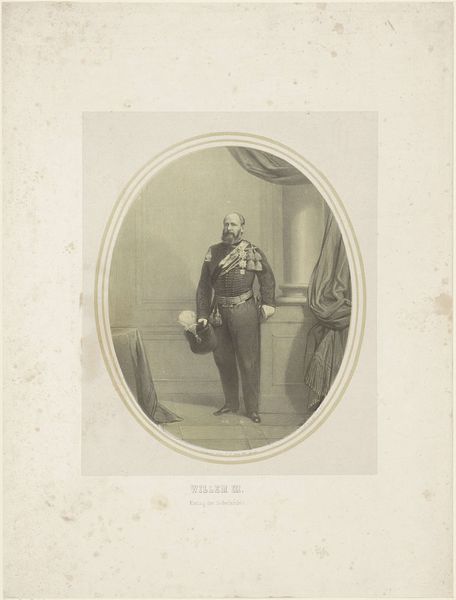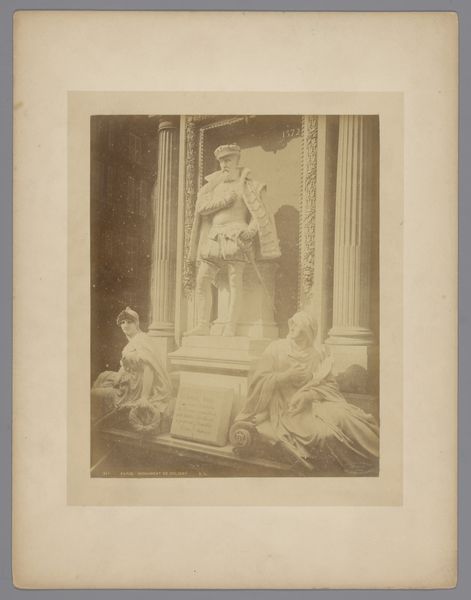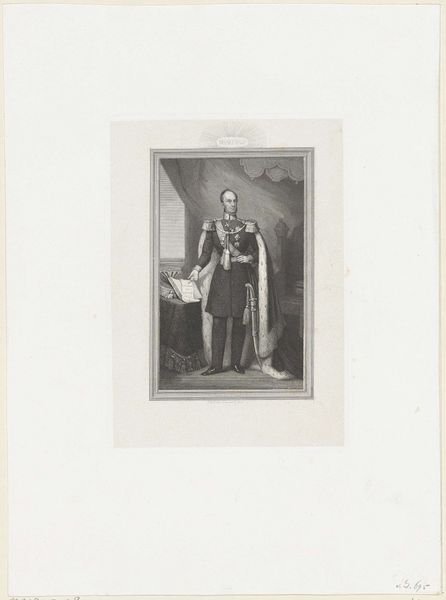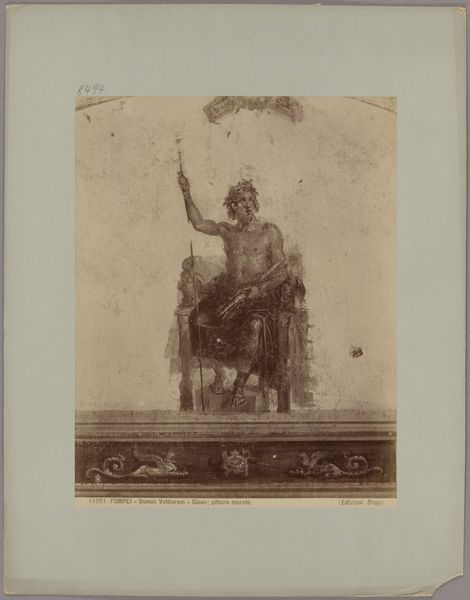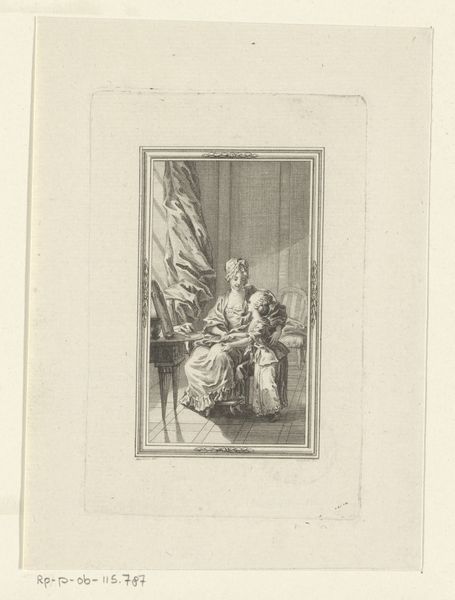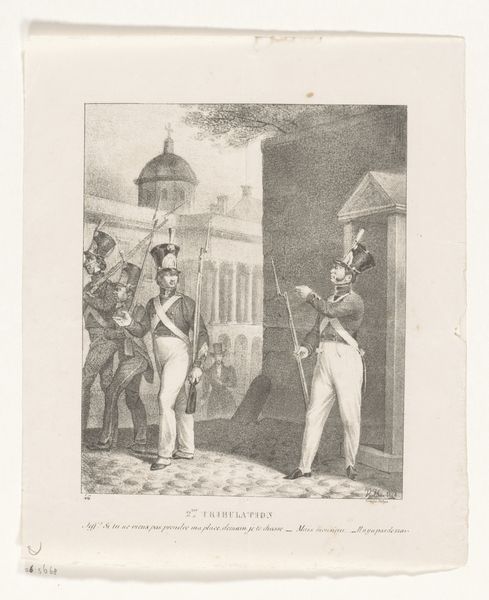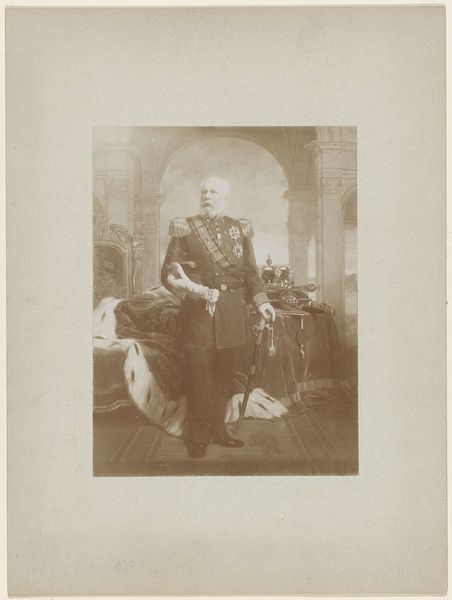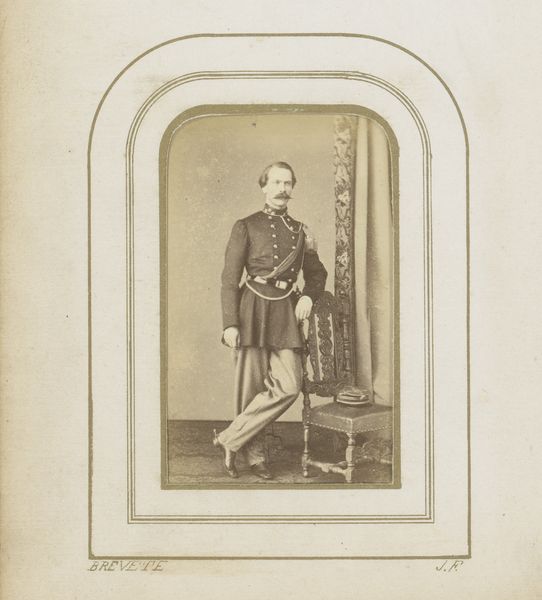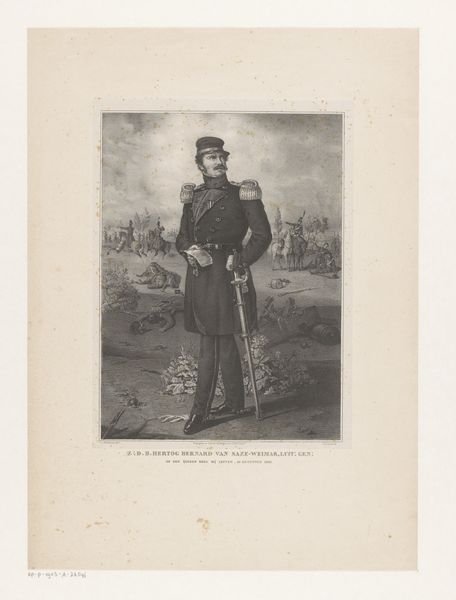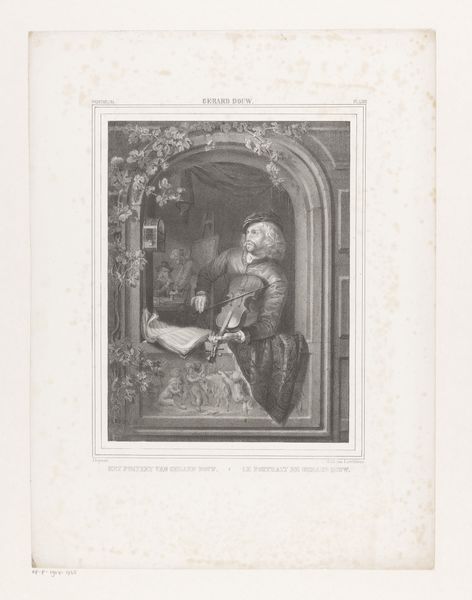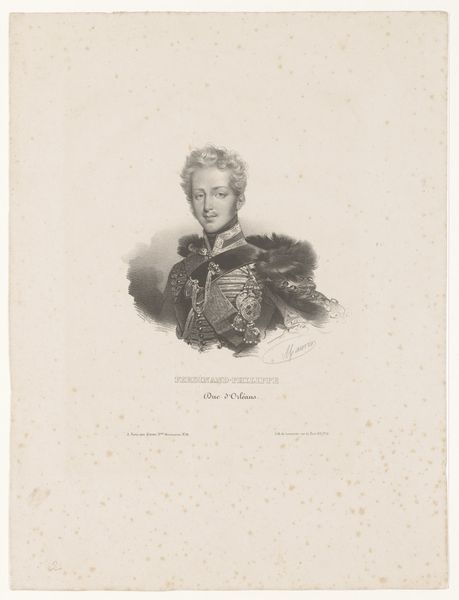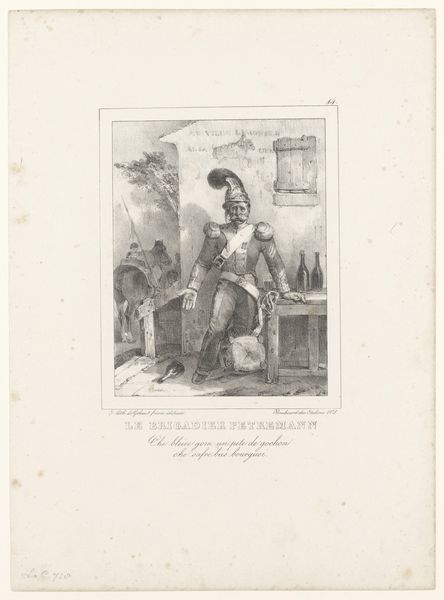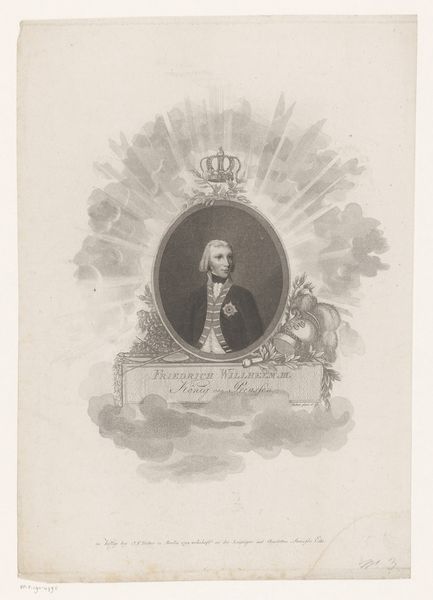
photography
#
portrait
#
16_19th-century
#
water colours
#
photography
#
academic-art
#
watercolor
Dimensions: height 195 mm, width 167 mm, height 296 mm, width 226 mm
Copyright: Rijks Museum: Open Domain
This is an undated photograph by M.M. Couvée at the Rijksmuseum, after a painting of King William II. The image performs the visual work of monarchy, staging its power through recognizable tropes like a regal posture, crown, ermine cloak and classical architecture. Considered within the context of its time, this portrait sits at the intersection of emerging photographic technologies and entrenched systems of power. Photography, although still relatively new, provided a means of disseminating and democratizing images. Yet, portraiture in general, and royal portraiture in particular, was about solidifying hierarchy. We might ask, what does it mean to reproduce the image of a monarch through a medium that was reshaping visual culture and beginning to challenge traditional forms of representation? On the one hand, the photograph attempts to reaffirm the King's authority. On the other, the photograph's accessibility could undermine the aura and mystique that monarchy depends on. In this sense, Couvée’s work is a fascinating reflection of the shifting dynamics between power, representation, and the evolving role of visual media in the 19th century.
Comments
No comments
Be the first to comment and join the conversation on the ultimate creative platform.
